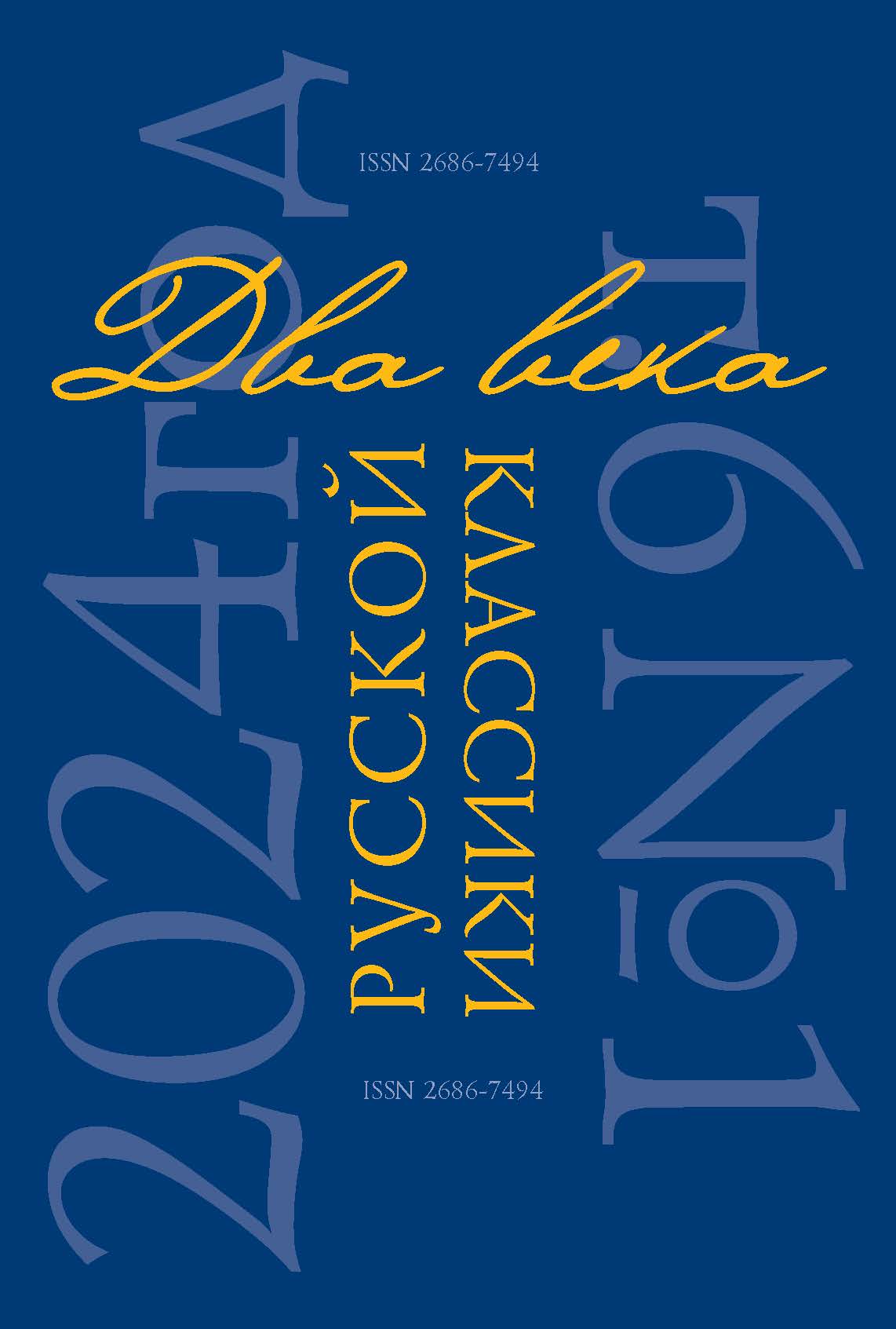Abstract: The article is devoted to Fyodor Tyutchev’s understanding of the special role of Russia as a country that still retains true Christianity as its spiritual and historical basis. The mission of Russia, according to the poet, is to maintain order on earth and the execution of higher laws, to avoid the onset of the realm of lawlessness. The work shows the process of Fyodor Tyutchev’s comprehension of the inseparability of the destinies of the priesthood and the monarchy, the inseparability of ecclesiastic and imperial history of Russia. The poet believed that Orthodoxy gives meaning to the activities of the state – the denial of Christianity and the imperial-state building based on it legitimises the sinful state of human nature. Calling Russia the heiress of Byzantium, Fyodor Tyutchev comes to the conclusion that it has become the mouthpiece of the fate of one big tribe and of the best, intact and healthy half of the Christian Church. The poet and thinker noted that the fluctuations of the Christian foundations and the slipping from them of the individual, state, society, all mankind into pre-Christian paganism (characteristic for the time of Fyodor Tyutchev) can lead to dire consequences. The author of the article analyses Fyodor Tyutchev’s thoughts on the crisis of the 19th century civilisation, the spiritual essence of which lies in the rejection of the freedom represented by Christianity and in state of enslavement by the autonomous human self and by the undeified political power.
References
Aksakov I. S. Biografiia Fedora Ivanovicha Tiutcheva [Biography of Fyodor Ivanovich Tyutchev]. Moscow: tipografiia M. G. Volchaninova Publ., 1886, 327 p. (In Russ.)
Sinitsyna N. V. Tretii Rim. Istoriia i evoliutsiia russkoi srednevekovoi kontseptsii [History and evolution of the Russian medieval concept]. Moscow, Indrik Publ., 1998, 410 p. (In Russ.)
Solov'ev Vl. S. Soch.: v 2 t. T. 2. [Works in 2 vols. Vol. 2]. Moscow, Mysl' Publ., 1988, 822 p. (In Russ.)
Tikhomirov L. A. Religiozno-filosofskie osnovy istorii [Religious and Philosophical Foundations of History]. Moscow, 1997, 592 p. (In Russ.)
Tiutchev F. I. Sobr. soch. i pisem v 6 t. [Collected works and letters in 6 vols.]. Moscow, 2003–2007. (In Russ.)
Tiutcheva A. F. Pri dvore dvukh imperatorov. Vospominaniia. Dnevnik. 1853–1855 [At the court of two emperors. Memories. A diary. 1853–1855.]. Tula, Priok. kn. izd-vo Publ., 1990. 396 p. (In Russ.)
Shmurlo E. F. Moskva – Tretii Rim [Moscow - the Third Rome]. Slavianovedenie [Slavic studies]. 1997, № 5, pp. 52–66. (In Russ.)









